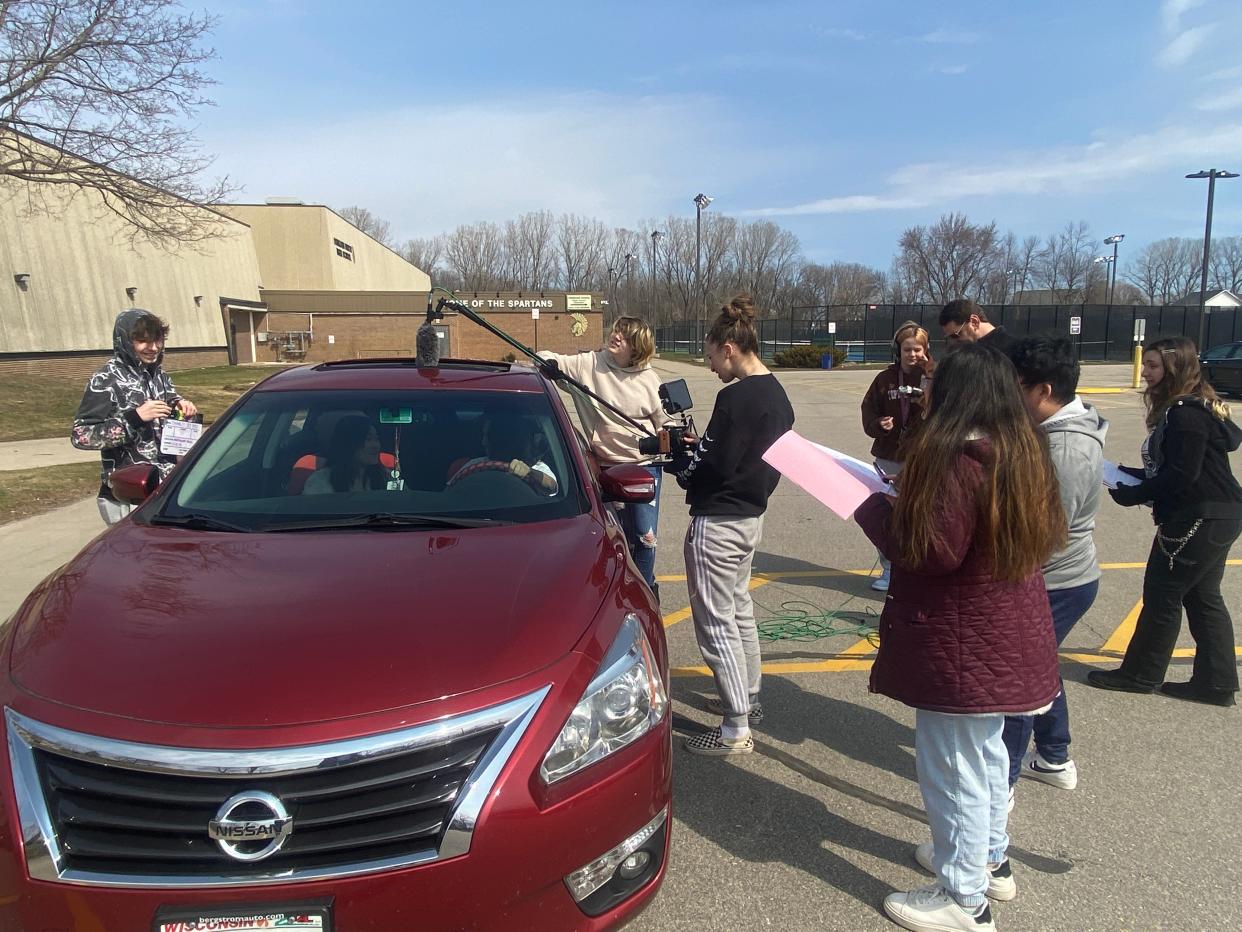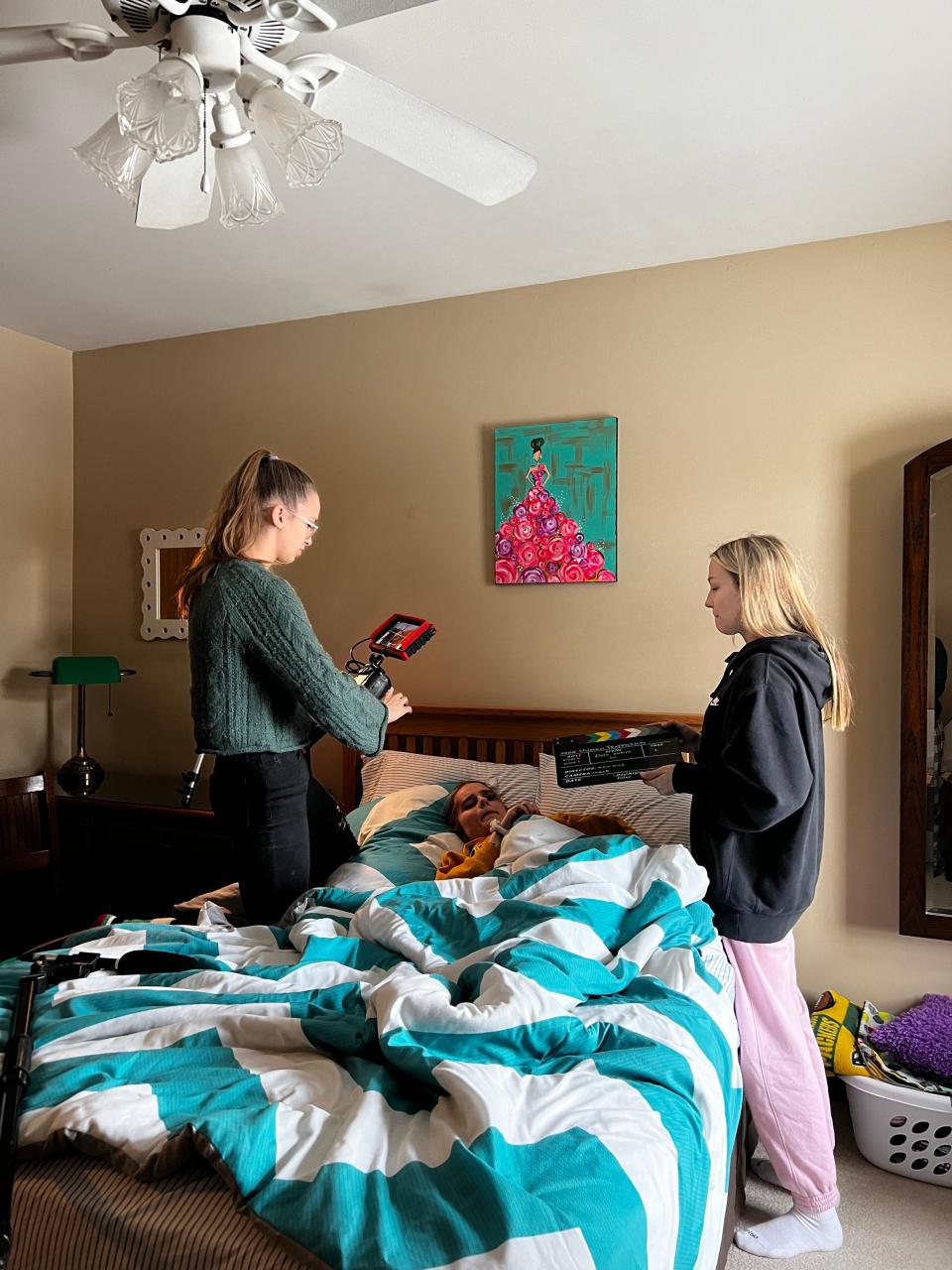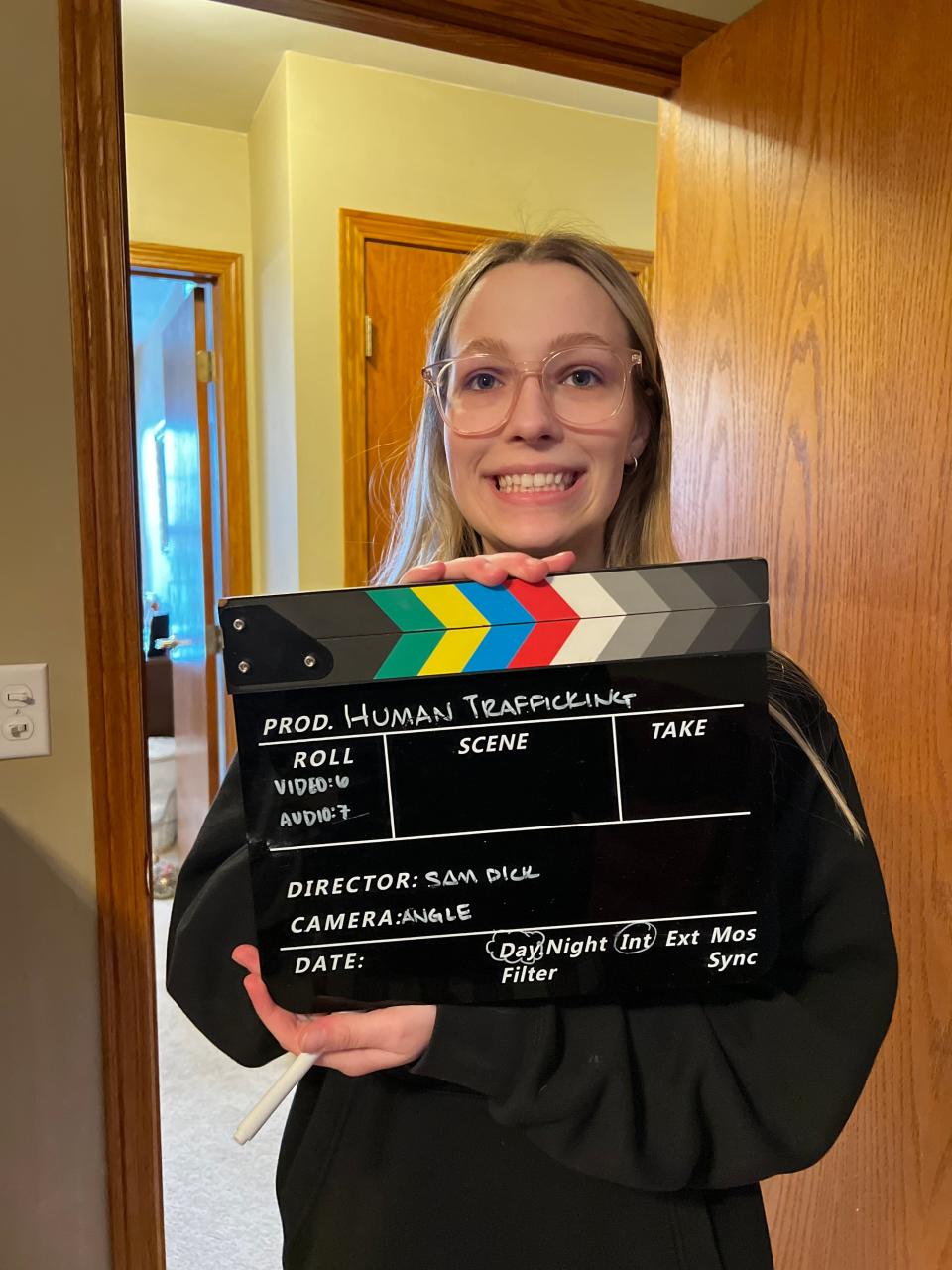Oshkosh North students took 2nd in a national film contest on human trafficking. Here’s what they learned.

OSHKOSH – Before the juniors and seniors at Oshkosh North High School started working on a short film about human trafficking, they assumed it was a distant problem.
But as they learned more about the dark world of sex and forced labor trafficking, they understood these crimes hid in plain sight all around them.
"You think of human trafficking and assume it's happening behind closed doors — and it is, but when we were going through this process and coming up with our storyline for the film, it helps you to understand that people around you, especially in school, could be going through this and you just don't know about it," said Emma Salentine, a senior at Oshkosh North and the film's producer.
National Human Trafficking Hotline has identified 796 cases and 1,640 in Wisconsin alone since its inception in 2007.
Oshkosh has been a hotbed for cases in recent years, too, with six men arrested in September for a suspected human trafficking ring and two alleged trafficking survivors intercepted at a spa last May.
Since the Oshkosh nonprofit organization Damascus Road began accepting walk-ins in 2015, they've helped nearly 500 women who have been sexually exploited.
The Oshkosh North students' gaining knowledge of human trafficking through film wasn't exactly random. When Angela Brown, a film production and English teacher at Oshkosh North heard about a nationwide film contest for high school students called "What Would You Do?" in November sponsored by the U.S. Catholic Sisters Against Human Trafficking, she was intrigued.
High schoolers would have the opportunity to educate themselves on human trafficking and spread awareness through film, with the goal of empowering students to identify and prevent human trafficking in their community and beyond.
Brown said the two film classes she taught this semester had as much seriousness as a Saturday Night Live skit. She didn't think any of her students wanted to disrupt their experiments in satire to dabble in such a serious undertaking. But 10 students surprised her.
Six months later, on a Sunday in early May, the students gathered for a viewing of the award ceremony with all the pomp and circumstance of a night at the Oscar's — on a high school budget, that is. There, among snacks and soda, they learned their film, "A Deal with Romeo," won second place in the national contest.
Among the honors, the class will receive $750 in cash prize and the film will be screened at the fourth annual Oshkosh North Film Festival at 2 p.m. May 23 at Oshkosh North High School auditorium, 1100 W. Smith St.
Sam Dick, a junior at Oshkosh North who directed the award-winning film, said that, for him, all his initial assumptions about human trafficking grew as he and his peers delved into the topic. Even familiar terms like "kidnapping" barely begin to encapsulate the experience of being a victim of human sex trafficking. To be kidnapped, he said, doesn't always mean you're whisked away and locked up.

The film takes its title from a type of human sex trafficker, often called a "Romeo," who uses romance as a snare to entrap his victims into cycles of abuse and exploitation, said Brayden Klauer, a senior at Oshkosh North who played the Romeo figure.
"They're almost always still living their 'normal' lives," said Klauer. "They're being abused night after night but are pretending to be fine. It's almost like they develop this Stockholm Syndrome to the point where they think they can't escape and no one can help them. It's terrifying to think that someone could go through that."
Junior Thao, a junior at Oshkosh North and the screenplay supervisor, said the film team decided to focus on a school setting because that tends to be an area rife with trafficking risks: it's social, teenagers are vulnerable and it's an environment where victims can shape-shift back into students unbeknownst to their peers.
Thao said he hoped the circumstances could be generic enough they could demonstrate the universal signs to look out for and how to get help from friends and trusted adults.
The short film follows a female student played by Elara Lloyd, a senior at Oshkosh North, who gets involved with a Romeo figure as a consequence of another student, played by Alyssa Wiedenhaft, a junior at Oshkosh North, who connects them. Wiedenhaft's character tells the Romeo character that Lloyd would be "good for the kiddy stroll."
The students learned the term "kiddy stroll" while researching for the film. Klauer described the concept as displaying children in traffic rings for potential buyers.
"It's just gross," Klauer said.
Although the film yielded some disturbing terminologies and offered eye-opening sketches of insidious crimes "happening under our noses," said Zahara Buhrow, a junior who played the concerned friend in the film, the film also had the positive upshot of bringing the students closer.

Buhrow and assistant producer Aubrey Poster, a junior, talked about the way conversations about the film turned into "therapy sessions." They were able to discuss sexual assault and "trauma dump," Poster said, connecting with each other about the reality of sexual violence. Many of the students working on the film have friends who have endured sexual assault, which made the need to tell the story right all the more important.
For Kimi Binning, a junior and the cinematographer and editor, putting together the film emphasized how critical it is to reach out if you or someone you know is in danger. It's a takeaway that will be with the students for the rest of their lives, they said.
“Not everyone knows what goes on behind the scenes of human trafficking or the signs of a friend being trafficked,” said Binning. “If somebody needs help, they should reach out, and someone will help you no matter what.”
If you or someone you know needs help, call the National Human Trafficking Hotline toll-free, 24 hours a day, seven days a week at 1-888-373-7888 to speak with a specially trained Anti-Trafficking Hotline Advocate. Support is provided in more than 200 languages. Callers can dial 711 to access the hotline using TTY. You can also email help@humantraffickinghotline.org. To report a potential human trafficking situation, call the hotline at 1-888-373-7888, or submit a tip online here.
Dig deeper:
Damascus Road Project: Oshkosh nonprofit works with law enforcement, agencies to help victims of human sex trafficking
Human trafficking: Human trafficking is all over Wisconsin, but subtle. You might have seen victims and never known.
Grooming: Grooming, by design, is difficult to detect. Here are four ways to prevent child sexual abuse.
Natalie Eilbert covers mental health issues for USA TODAY NETWORK-Wisconsin. She welcomes story tips and feedback. You can reach her at neilbert@gannett.com or view her Twitter profile at @natalie_eilbert. If you or someone you know is dealing with suicidal thoughts, call the National Suicide Prevention Lifeline at 988 or text "Hopeline" to the National Crisis Text Line at 741-741.
This article originally appeared on Oshkosh Northwestern: Oshkosh North human trafficking film takes second in national contest

